He was orthodox in his faith, accepting all the books of the Canon as well as the Rule of Faith. 8
He emphasized the gift of prophecy and was soon joined by two prophetesses, Prisca and Maximilla. Speaking in tongues was probably also a common occurrence among the Montanists. 10
The emphasis on spiritual gifts brought Montanus into sharp conflict with many church leaders who contended that the newly developing ecclesiastical office held preeminence over any spiritual gift. 11
These leaders also took issue with the manner in which Montanus and his followers delivered their prophecies. Although they found no fault with the content of the prophecies, they accused them of delivering them in a frenzied state of ecstasy. 12
Several regional councils or synods held in the latter half of the second century censured Montanus and his followers. This calling of church councils, however, merely highlights the impact that Montanism was having throughout the church. In their book Christian Initiation and Baptism in the Holy Spirit, Kilian McDonnell and George Montague point out that these were the first councils in the history of the church except for the Jerusalem council of Acts 15, and that “neither the threat of gnosticism, nor Marcionism had ever pressed the Church into calling councils” 13
Support for Montanus and his followers was widespread. Eusebius indicates that Irenaius was sent to Rome by the Gallic Christians to intercede on behalf of the Montanists. 14
Iranaeus must have been referring to the opposers of Montanus when he expressed his dismay at those who “set aside at once both the Gospel and the prophetic Spirit.” These same men, said Irenaeus, could not admit the apostle Paul either, for in his epistle to the Corinthians “he expressly speaks of prophetical gifts, and recognizes men and women prophesying in the Church.” 15
In Against Praxeas, Tertullian says that the bishop of Rome initially “acknowledged the prophetic gifts of Montanus, Prisca and Maximilla” and “bestowed his peace” upon the Montanist churches was to say, “We belong to the same communion; we celebrate the same Eucharist; we hold the same faith.” 17
Paraxeas taught a doctrine called monarchianism that declared the Father, Son and Holy Spirit were one and the same. This influenced the Romans bishop against Montanaeus and he withdrew his letters of peace. Tertullian says that Praxeas dida twofold service for the devil at Rome. “He drove away prophecy, and he brought in heresy; he put to flight the Paraclete, and he crucified the Father.” 18
Tertullian also wrote several books defending ecstatic prophecy, all of which were either lost or destroyed. 19
It is challenging to evaluate the Montanists because most rely on the critics of Montanism rather than their own writings. Tertullian’s seven books on ecstatic prophecy in which Montanists defended themselves, have not survived because they were either lost or destroyed by their enemies.
Montanism has gained a more favorable hearing over time. In 1750, John Lacy wrote a work called The General Delusion of Christians Touching the Ways of God Revealing Himself to and by the Prophets. It gives a positive view of Montanism and refutes many of the traditional accusations. John Wesley wrote the following response in his Jounal on August 15, 1750 after reading this book:
I was fully convinced of what I had once suspected: 1) That the Montanists, in the second and third centuries were real Scriptural Christians; and 2) That the grand reason why the miraculous gifts were so soon withdrawn was not only that faith and holiness were well night lost, but that dry formal, orthodox men began even then to ridicule whatever gifts they had not themselves, and to decry them all as either madness or imposture.20
David Aune refutes the claim that pagan prophecy intruded into second century Christianity in his extensive study of ancient prophecy, Prophecy in the Early Church and the Ancient Mediterranean World. He maintains that all major features of early Montanism, including the ecstatic nature of their prophetic utterances, “are derived from early Christianity.” 22
McDonnell says, “The Church never really recovered its balance after it rejected Montanism.” 24
Origen would then go on to state that; “These signs have diminished.” 28
He was speaking to the fact that after the Church rejected Montanism, the miraculous diminished in the institutionalized church.
8. Tertullian, On Fasting, vol.4 of the Ante-Nicene Christian library, 102. Ronald E. Heine, The Montanist Oracles and Testimonia, 27. Phillip Schaff, Ante-Nicene Christianity, vol. 2 of History of the Christian Church 421.
10. F.C. Klawiter, The New Prophecy in Early Christianity: The Origin, Nature, and Development of Montanism, A.D. 165-200
11. Schaff, Ante-Nicene Christianity, vol. 2 History of the Christian Church, 424.
13. Kilian McDonnell and George Montague, Christian Initiation and Baptism in the Holy Spirit, 108.
14. Eusebius, The History of the Church, 206. Schaff, Ante-Nicene Christianity, vol. 2 of History of the Christian Church, 420. Robert M. Grant, Augustus to Constantine, 136. McDonnell and Montague, Christian Initiation and Baptism in the Holy Spirit, 108. David Wright, Montanism: A Movement of Spiritual Renewal? Theological Renewal 25.
15. Irenaeus, Against Heresies, vol. 1 The Ante-Nicene Christian Library, 429.
17. McDonnell and Montague, Christian Initiation and the Baptism in the Holy Spirit, 108.
18. Tertullian, against Praxeas, 597.
19. Jerome, Illustrious Men of the Church, vol. 3 Nicene and Post-Nicene Fathers of the Christian Church, 373.
20. Nehemiah Curnack, ed., vol. 3 The Journal of the Rev. John Wesley A.M., 8 vols. 490.
24. Kilian McDonnell, The Baptism in the Holy Spirit, 44.
28. Origen, Against Celsus, 614.

